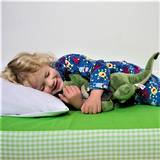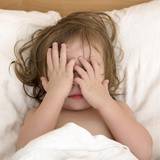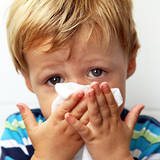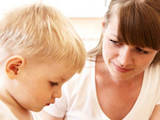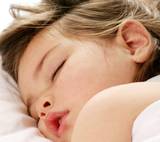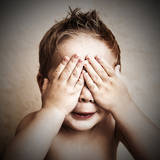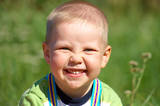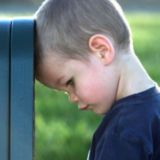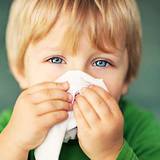Preschoolers
Check out our latest articles, practical tips and advice for parents on your preschoolers health and wellbeing.
From 3 years until they start school.
From 3 years until they start school.
Tips on starting night time toilet training
Thinking of night time toilet training? Once your child is out of nappies during the day, the next step is to start toilet training at night. Every child is different, so is the length of time it will take for them to be fully night time toilet trained will differ too. Just remember, it’s not a competition!
Tips on potty training away from home
If you’re potty training away from home, anxiety can sometimes rear its head for you as a parent or caregiver. Will your child use a public toilet? Will all your hard work be wasted simply by leaving the house? Or will they simply sail through the whole process? Follow these tips on how to manage potty training away from home.
Quick guide to nightmares & night terrors in preschoolers
It’s likely that your preschooler will experience nightmares and night terrors at some stage during their early development, but what's the difference? What are the signs you should look out for when it comes to nightmares and night terrors?
5 ways to help kids sleep on hot summer’s nights
We all love summer, but it can wreak havoc with kids sleep patterns with balmy nights and daylight streaming through their curtains. A good night’s sleep is important for all of us, so help make things more comfortable with these 5 easy tips to help them get to sleep during the warmer months.
Quick guide to kids coughs
Check out our quick guide to kids coughs and coughing - common types of coughs you might come across this winter. Kids coughing is not uncommon at this time of year, but would you be able to recognise what sort of cough it is and how to treat it? Here are some of the more common types of coughs, symptoms and how you can help treat them.
Bedtime routines for toddlers & preschool kids
In this article we take a look at some of the benefits of good bedtime routines for toddlers and pre-schoolers, why they're important and how to put a bedtime routine in place. We also share some ideas to help you establish your own bedtime routines and encourage healthy sleep habits for the future.
How to recognise measles in babies & kids
Would you recognise if your baby or kids had measles? We take a look at the symptoms of measles, treatment, preventing measles and how to get the MMR vaccine.
Common eye problems affecting young kids
Most kids suffer eye problems at some stage or other, it comes with the territory. But are you prepared? Here’s what you need to know about the most common problems affecting toddlers and preschoolers.
Teaching kids how to blow their nose
Learning to blow your nose must be one of the hardest things for kids to learn to do! Most are experts at blowing air out of their mouths, but blowing through their nose is a whole new technique they need to master. Try these simple steps to help your kids learn how to blow their nose.
Anxiety in preschoolers
Kids of all ages have anxieties or worries of some kind. However, in most cases, anxiety in preschoolers is fairly transient and short-lived. Find out about some of the common causes of anxiety for preschoolers and ways you can help manage it.
Nightmares vs night terrors in preschoolers
Night waking in preschoolers is not uncommon and can sometimes be caused by nightmares or night terrors. But how do you know the difference between a nightmare and a night terror? Gaining an understanding of them both is key to determining the best way to handle them. We look at nightmares and night terrors in more detail and give you some tips on how to combat the possible underlying causes and help stop your preschooler’s episodes.
Reasons for bed wetting & how you can help
It may be of some comfort to know that wetting the bed is very common and the majority of children will grow out of it. We take a look at what causes bed wetting and how parents can help to manage it.
8 Tips on kids asthma & sleepovers
Sleepovers with friends and family can be lots for fun for young kids. However if they or one of their friends has asthma, it pays to do a little planning up front. A new or unfamiliar environment can pose unforeseen problems that could trigger a child’s asthma, so good communication beforehand is key.
Are your kids getting enough Vitamin D?
How do you know if your kids are getting enough vitamin D or if they're deficient in anyway? We look at the importance of vitamin D, common sources and how to ensure your kids get enough vitamin D on a daily basis.
How much sleep do babies & young kids need?
As parents we know that young children need their sleep to grow and develop, but many of us are unsure as to how much sleep babies, toddlers and pre-school kids actually need to reach their full potential. Unfortunately when it comes to sleep patterns, there’s no such thing as an ‘average’ child, but our sleep guide will give you an idea of what you can expect for newborns to 5 year olds, from day time naps to sleeping through the night.
5 Ways to stop kids being afraid of the dark
Are your kids afraid of the dark? Do they get upset and can't sleep as they think there are ‘monsters’ under their bed each night? They're not alone! We take a look at some of the reasons behind your kids fears of the dark, ways you can respond, how to make a monster fighting kit and putting some monster rules in place!
Does your child have ADHD?
The number of young children being diagnosed with ADHD (Attention Deficit Hyperactive Disorder) has increased over the last decade. So what is ADHD, and why are more children being labelled with it?
Is your child depressed?
Do you think your child is depressed? Childhood depression rarely has a single cause and it’s usually a combination of factors that depend on your child’s innate coping abilities. We take a look at the causes of childhood depression, signs and symptoms, getting help, treatment, supporting your child and improving communication.
Hay fever tips for young kids
Do you have young kids who are prone to seasonal hay fever? Runny nose, itchy eyes and lots of sneezing? As we head into the warmer months seasonal hay fever will start to strike. Find out what you can do to help.
Are kids yoghurts doing more harm than good?
Many of us buy yoghurts for our kids because of the widely published health benefits they have, ranging from friendly bacteria to the amount of calcium they contain. But not all yoghurts are created equal! Some types of kids yoghurts have the same amount of sugar and additives in them as chocolate desserts! So how do you tell the difference between 'real' kids yoghurts that offer health benefits from other ‘fake’ kids yoghurts that just taste good?
The effects of W-sitting
We take a look at the effects of W-Sitting, why it’s not ideal and the postural and developmental issues it may cause young kids.
Cows milk allergy
Cows’ milk is one of the most common causes of food allergy in young children, affecting about one in 50 children in New Zealand. So what is cows’ milk allergy? We take a look at the symptoms and management of cows’ milk allergy.
Healthy spines & smarter brains
Find out how growing a healthy spine and a learning brain both need the same thing for your kids to develop and why movement is so important. Kids these days just don’t move as much as they used to. So, what can we do to support a healthy spine and a healthy brain?
15 Reasons for babies & kids to see a doctor
You should always rely on your gut instinct as you know your child best, but here are 15 common reasons when you should take young kids to a doctor or seek out medical advice.

